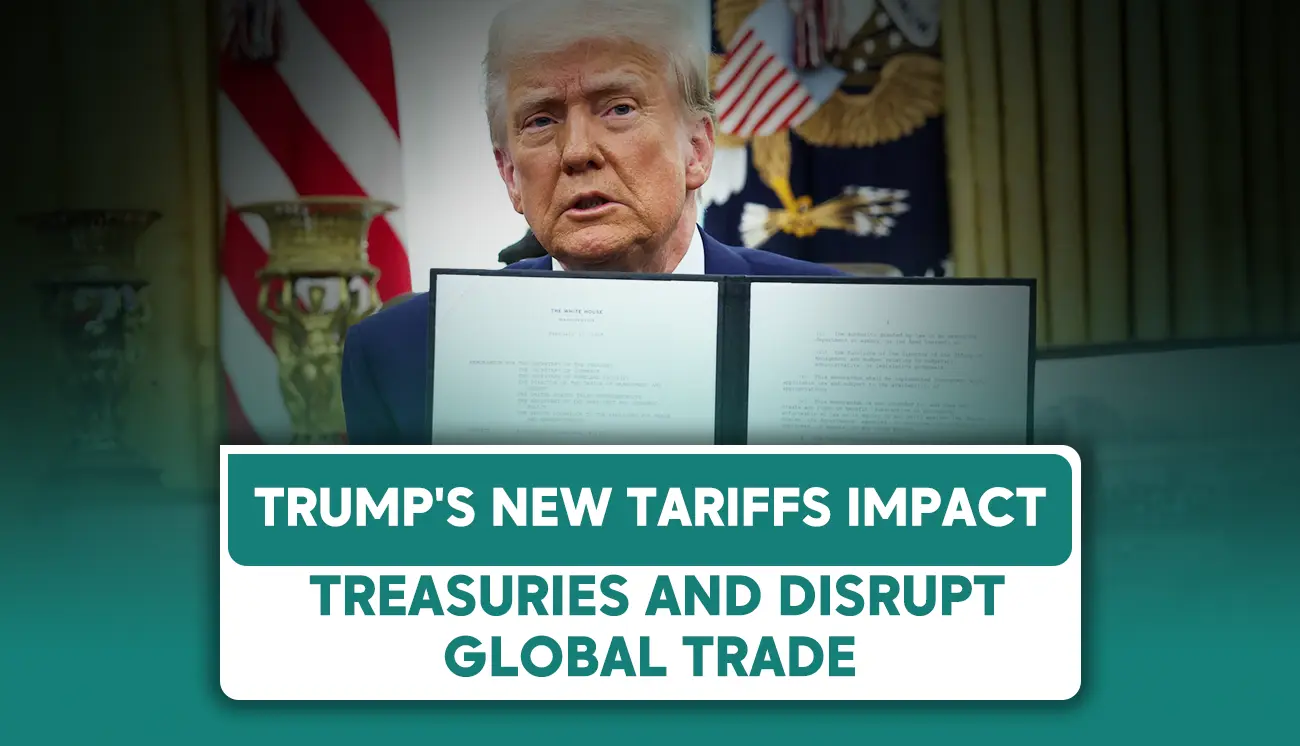Global markets have been significantly affected as the new U.S. tariffs officially came into force, placing Wall Street on the edge of another tense trading session.
The sharp drop in U.S. bonds was the most prominent development, as these bonds are considered one of the primary assets in global financial markets. The yield on the 10-year U.S. Treasury note—which serves as a benchmark for trillions of dollars in loans and securities—recently stood at 4.33%, after reaching 4.47% earlier on Wednesday.
For bond investors, the steep rise in yields uncomfortably resembles the panic-selling seen during the height of the COVID-19 crisis, when traders sold off everything possible to raise liquidity. Further increases in bond yields may add more pressure to economies already burdened by rising prices and slowed trade activity due to the tariffs.
Investors expressed broad concern over holding long-term Treasuries ahead of the upcoming auctions: the 10-year note auction on Wednesday and the 30-year bond auction on Thursday. This uncertainty has contributed to a broad decline in global equities in recent hours, with Japanese stocks down 3.9% and European shares falling by 2% during Wednesday morning trading. U.S. stock futures have remained volatile, posting modest losses.
The U.S. Dollar Index declined by 0.5%, extending its fall from its January high to a cumulative 7% loss. On Wednesday, Deutsche Bank analysts warned that trading activity over the past week across stocks, bonds, and currencies reflects a “synchronized collapse in the prices of all major U.S. assets,” indicating a move into “uncharted territory in the global financial system.”
Japan’s top currency diplomat pledged to help maintain global financial stability, stating that Tokyo would coordinate with other countries on changes in U.S. trade policy. “It won’t be effective unless countries act together because the [global] economy is interconnected,” said Atsushi Mimura, Japan’s Vice Minister of Finance for International Affairs, during a press briefing on Wednesday.
President Trump’s reciprocal tariffs on around 100 countries have come into effect in recent hours, including a 104% tariff on Chinese imports. Trump defended the tariffs during a Tuesday dinner with Republican House members and said that tariffs on foreign-manufactured pharmaceutical products would be announced “very soon.”
Vanguard’s chief global economist lowered his 2025 forecast for U.S. GDP growth to under 1%, down roughly a full percentage point from his previous estimate. The revised projection, issued on Tuesday, assumes Trump will roll back some of the tariffs.
U.S. stocks ended Tuesday in the red after a highly volatile session. The Dow Jones Industrial Average closed at its lowest level in 52 weeks. The day was historic for the S&P 500, which experienced extreme intraday movement: for the first time since 1978, the index rose more than 4% during the session but ended the day down more than 1%. The Nasdaq Composite also posted its largest single-day intraday gain since at least 1982.





